Working with Custom T-FLEX DOCs Libraries |
  
|
Standard T‑FLEX CAD libraries cannot be used in the integration mode, because it would lead to incorrect saving of data to the T-FLEX DOCs. However you can turn a T‑FLEX CAD library into a common library, which ensures the synchronization of data between both systems.
A common corporate library for all user ensures uniqueness of used library elements.
First you have to import a CAD library into DOCs, then it can be connected to CAD for further usage.
A library imported into DOCs has no links to initial CAD library, i.e. the subsequent changes of the initial CAD library do not affect the DOCs library and vice versa.
Importing a T-FLEX CAD library into T-FLEX DOCs
Select a folder for the library to be imported to in the ![]() Files dataset window. Then call the
Files dataset window. Then call the ![]() Import Folder command from the toolbar or from the contextual menu.
Import Folder command from the toolbar or from the contextual menu.
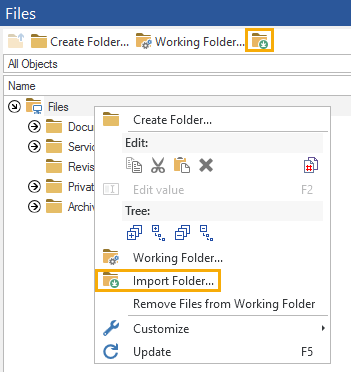 ,
,
The Windows Explorer window will appear, where you should specify a path to the T-FLEX CAD library folder and press the Select Folder button..
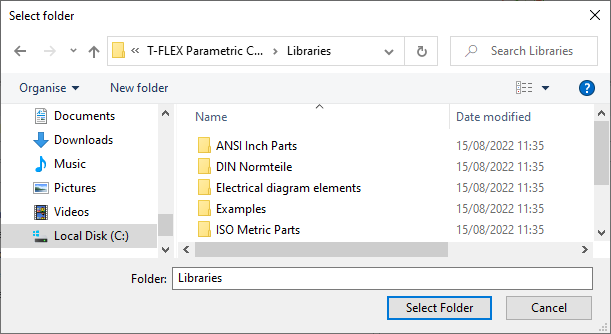
Wait for the import process to end. During import process a special window displays import progress.
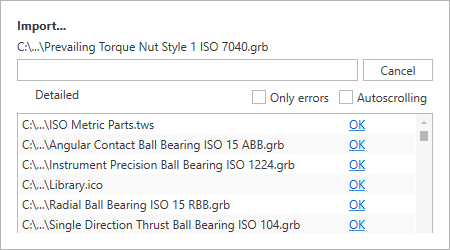
Upon finishing the import process, the Applying changes window will appear, where you should apply changes by clicking OK. Optionally, you can provide additional comments.
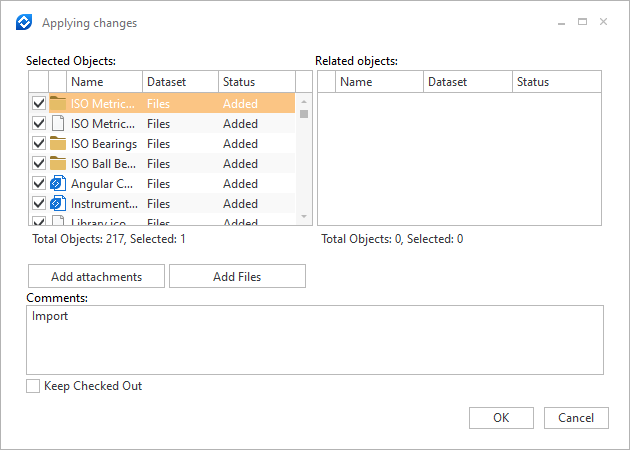
Connecting a T-FLEX DOCs library to T-FLEX CAD
A library imported to DOCs can be connected to CAD using the following command:
Icon |
Ribbon |
|---|---|
|
|
Keyboard |
Textual Menu |
|
File > Libraries > Open Configuration from T-FLEX DOCs |
This command may also be called from the toolbar or from the contextual menu in the ![]() Library Explorer tool window of the T‑FLEX CAD
Library Explorer tool window of the T‑FLEX CAD

A window will appear, where you have to select the .tws file of library configuration from the imported T-FLEX DOCs folder.
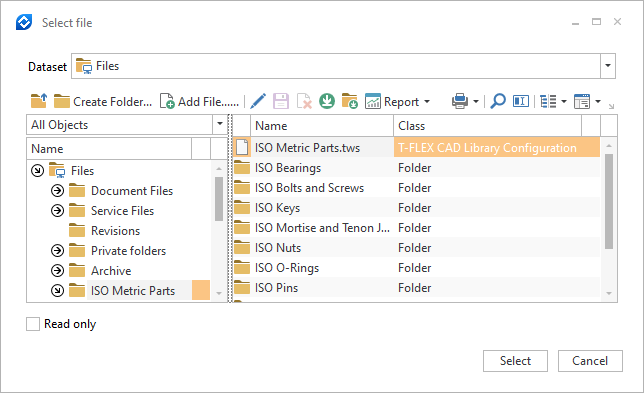
In result, the library imported into the T‑FLEX DOCs will be connected to the T‑FLEX CAD. It will be displayed in the Library Explorer window with the ![]() icon.
icon.
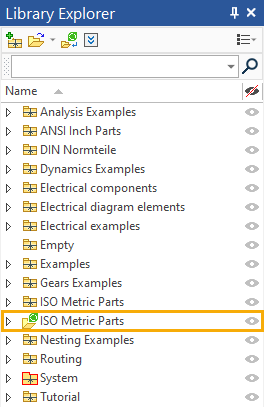
Alternatively you can connect particular files to T‑FLEX CAD instead of connecting the whole library. To do so, select the desired .grb file instead of library configuration file, when connecting a library.
In order to avoid confusion, it is recommended to close T-FLEX CAD libraries, which have the same names as connected T-FLEX DOCs libraries.
Connected T‑FLEX DOCs libraries are used in the same way as standard T‑FLEX CAD libraries: drag the desired library element into the required position within the active 3D or 2D window and set element's parameters.
Not only the standard libraries can be used. You can create your own custom T-FLEX DOCs libraries (e.g. a re-usable parts catalog) and use them for designing products in the T-FLEX CAD. Thus a correct saving of resulting product to the DOCs is ensured.